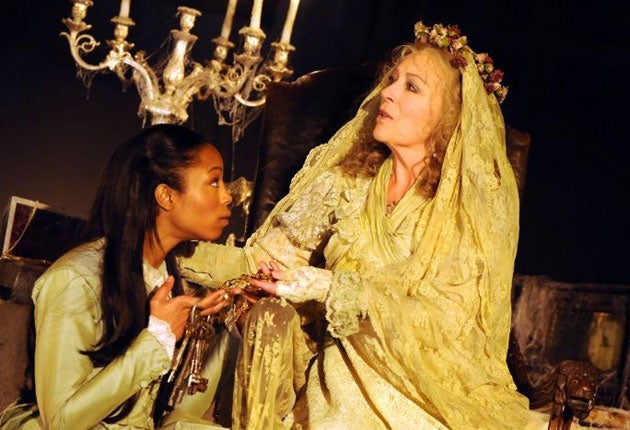Great Expectations, Palace Theatre, Watford

A barefoot village boy stumbles across an escaped African convict in the shadows of a graveyard, cursing the "white devil" colonisers of the Indian subcontinent where he finds himself.
The boy is Pip, the con is Magwitch, and this is the familiar-yet-foreign opening scene of Charles Dickens's Great Expectations, albeit reconceived for this compelling adaptation in 19th-century Calcutta, where the Raj is ruling authority, Pip an Indian boy, the hard-hearted Estella an adopted black orphan and the loveble figure of Joe Gargery a village cobbler.
The concept of cultural displacement comes off well: Magwitch's anger against his oppressors is affecting, Pip and Gargery's cheerful Northern (British) accents and traditional Indian garb signify their low caste while the reconception of Estella, whom Miss Havisham grooms into a refined "African princess" gives her character an added dimension: she realises she is, like Pip, not in control of her own destiny but merely aping her white British masters. Tariq Jordan plays his part as Pip, from boy to man, with a wide-eyed innocence yet the cast's performance can, at times, feel flat and message driven.
The playwright, Tanika Gupta, saw in Pip's desire to rise beyond his social class a striking parallel to her parents' immigrant generation who sailed to England to better themselves and identity politics clearly run strong: Pip goes from wearing the kurta in his village to an Englishman's suit in Calcutta and back again to traditional attire when he feels a growing national pride. Estella appears in African head-dress in the reconciliation scene with Pip, which suggests she has not only recovered her heart and humanity, but also her African identity. Biddy reminds Pip never to forget where he came from as he leaves his boyhood village. The message, to "be proud of who you are" rings clearly, perhaps too clearly at times.
To 12 March (01923 225671)
Join our commenting forum
Join thought-provoking conversations, follow other Independent readers and see their replies
Comments
Bookmark popover
Removed from bookmarks